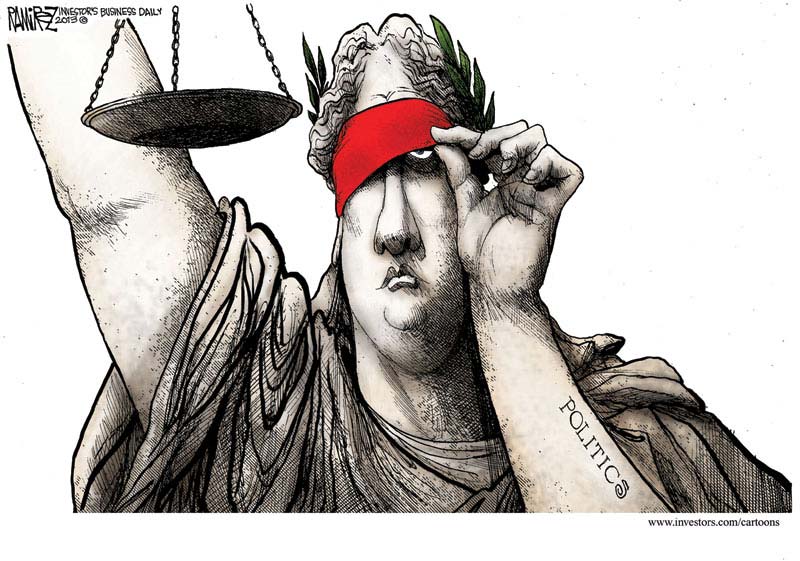
That's a very perceptive notion, and one that has deep roots in society, and it's still at play today with the most recent example of a female defending a male: Camille Vasquez, Esq. Vasquez was one of the high-profile attorneys on Johnny Depp's defense team, and she was rightly praised for her extremely effective cross-examination of Amber Heard.
But others weren't too happy that a woman was representing a man who had been accused of abusing another woman. There were articles and commentaries about how Vasquez was ignoring the plight of her gender, for personal gain. But the most toxic and, to my mind, unfair criticism came from a female law professor at Stanford named Michele Dauber, who issued a series of scathing tweets ridiculing Depp's defender for "sucking up" to men, and trying to curry favor with them at the expense of true victims of abuse.
In one of the tweets she wrote "of all the women who suck up to male power, women lawyers are the absolute worst of the bunch. Desperate to prove they are 'real lawyers' and understanding that being a woman undermines their identity as lawyers, they throw women under the bus as hard and fast as they can."
Understandably, Dauber got some blowback for those tweets, but a lot of people seemed to agree with her suggestion that lady lawyers use their lady parts to gain attention, and to indemnify themselves against attacks that we're "not good enough." This is similar to the old sexist trope about women who use their sexuality and gender to avoid getting traffic tickets. Bat the eyelashes, flash a red-lipped smile and all will be fine.
The rank misogyny of Dauber's tweets does not represent the majority of women who practice law, but does nonetheless reflect a disturbing and not insignificant constituency in the legal profession. I have avoided belonging to any "women in the law" organizations for a variety of reasons, but this one tops the list: I am not a woman in the law. I am a lawyer, who happens to be a woman.
When I've said that in the past, including in articles in legal journals, I've heard the usual things like "it's easy for you to discount your gender, you didn't have to struggle for anything." I've also heard that I needed to support women, even if this meant that I was turning my back on due process or the standards of the profession. This was apparently my "obligation" to future generations. I get it coming and going, from female lawyers older than me who see me ignoring their alleged struggle, and from females younger than me who think I owe them some sort of loyalty based on biology.
That's not happening.
The criticism of Donna Rotunno, Monique Pressley, who successfully represented Bill Cosby in his appeals, and now Camille Vasquez is very clearly based on a misunderstanding of the law and the profession. It is often said that the law should be color blind. It is less often said that it should be gender blind, but that is equally true. Women owe other women nothing beyond respect, honesty and an opportunity to prove themselves.
This bizarre idea that if a woman represents a male client who is accused by another woman of rape she is compounding that abuse, is not just outrageous. It's immoral. It sends us back to a time when females were defined solely by our gender, where our key functions in society were based on our ability to reproduce, take care of the household, raise a family and be a supporting character. We were not supposed to be leaders, we were loyal followers. Feminism was supposed to change that.
Instead, what feminism did was to simply use gender in another way. These women who are criticizing Vasquez are still defining their sisters by gender, only this time they are using that irrelevant characteristic to shame independent thinkers for displaying what feminism always taught was its guiding principle: female autonomy.
According to Michelle Dauber, who strangely still has a job teaching male and female law students at Stanford, Camille Vasquez wasn't giving us an example of excellent lawyering and uncommon skill. She wasn't using her law degree to do exactly the thing she was taught to do in law school: lawyer. She wasn't proving herself as a cracker jack litigator. For Dauber, Vasquez used her gender to make the case that she was no threat to the guys, that she was cool, on the team, etc. Dauber and her fellow travelers see this accomplished young attorney as one of those girls in high school who say and do all the right things so the boys will take notice and ask them to prom.
It's really quite disgusting, if you think about it. Women make up more than half of law school students, and law school graduates. We are partners in law firms, fill the federal benches and soon there will be four of us on the Supreme Court, two white, one Latina and one African American. We pass the bar at roughly the same rate as men. We are shaking the glass out of our hair, since the ceiling shattered a long time ago.
But some women still think that if we ignore the gender of our clients and only look at their guilt or innocence, or whether we think they deserve representation, we are infidels and apostates. Some women think that we are wedded to our gender, and that this should be the predominant factor that guides our personal and professional lives.
That is the sort of reasoning that is much more toxic and dangerous to the sisterhood than anything Johnny Depp or Harvey Weinstein has been accused or convicted of doing.
(COMMENT, BELOW)
Christine M. Flowers is a lawyer and columnist.


 Contact The Editor
Contact The Editor
 Articles By This Author
Articles By This Author